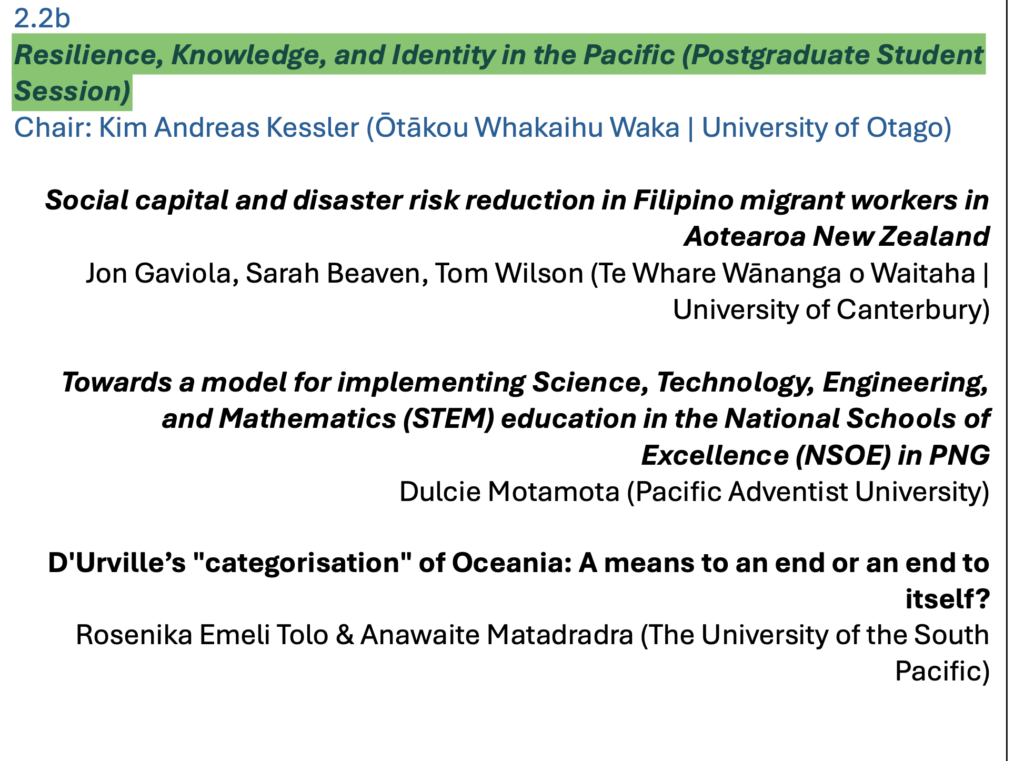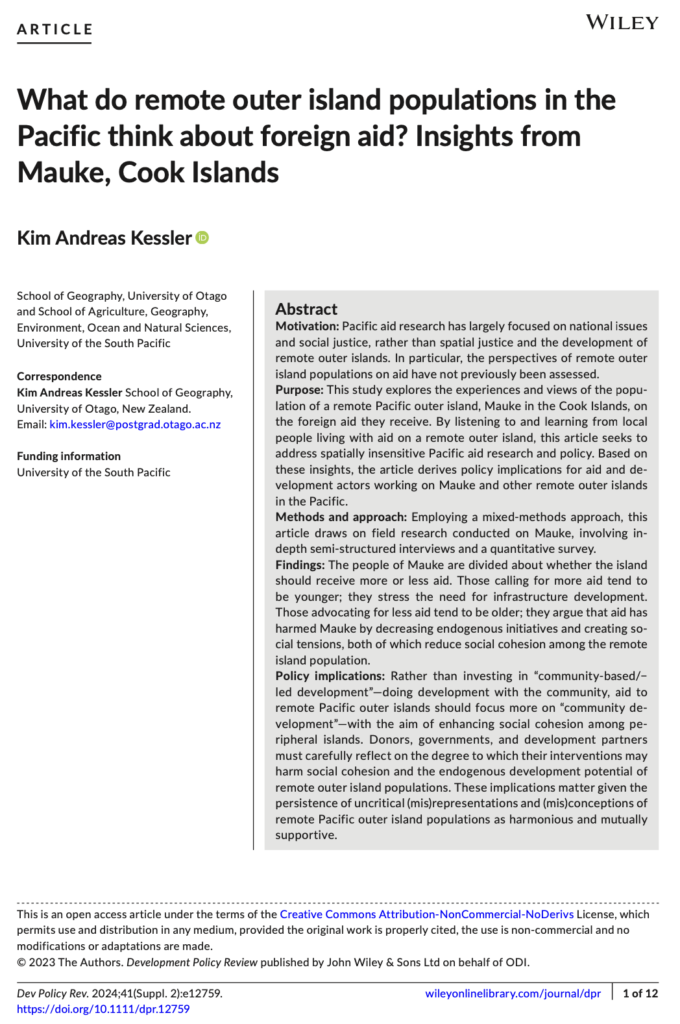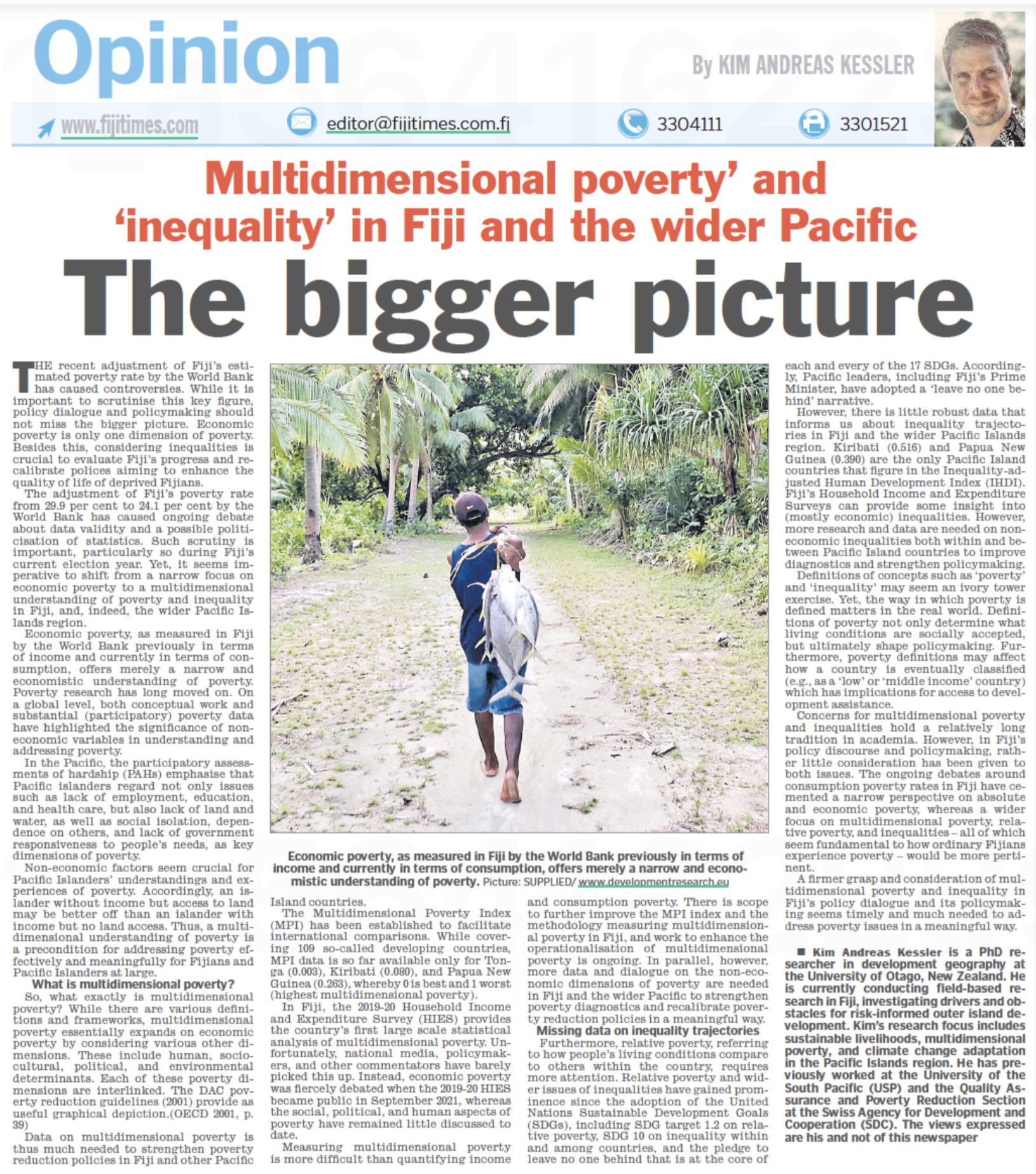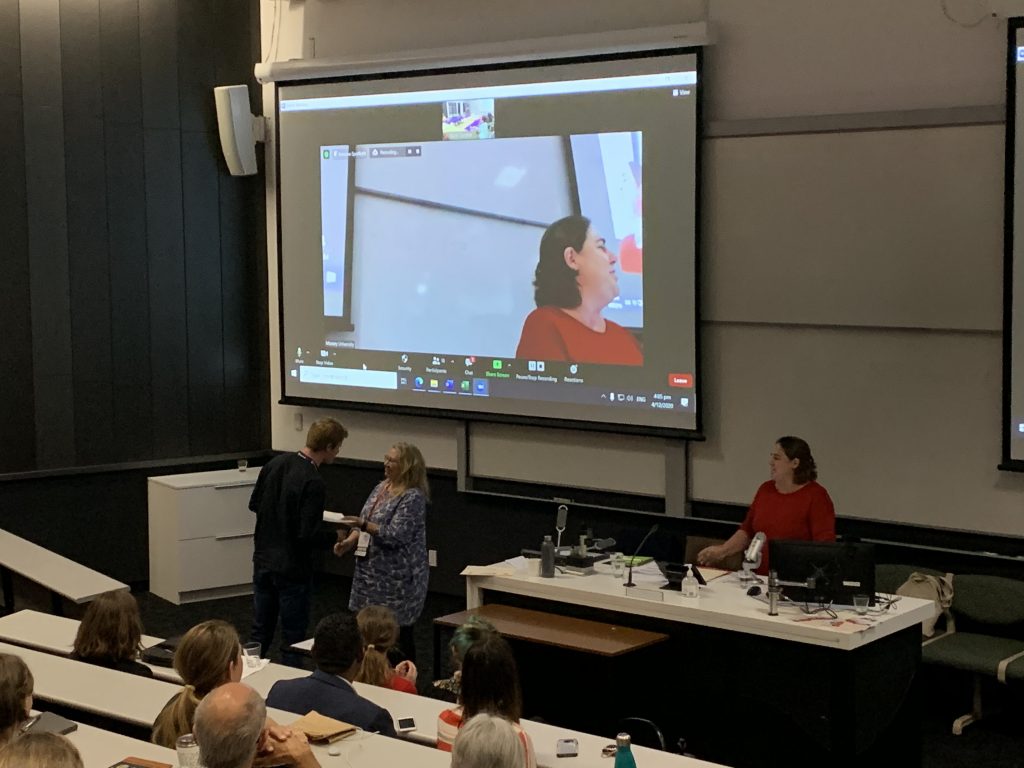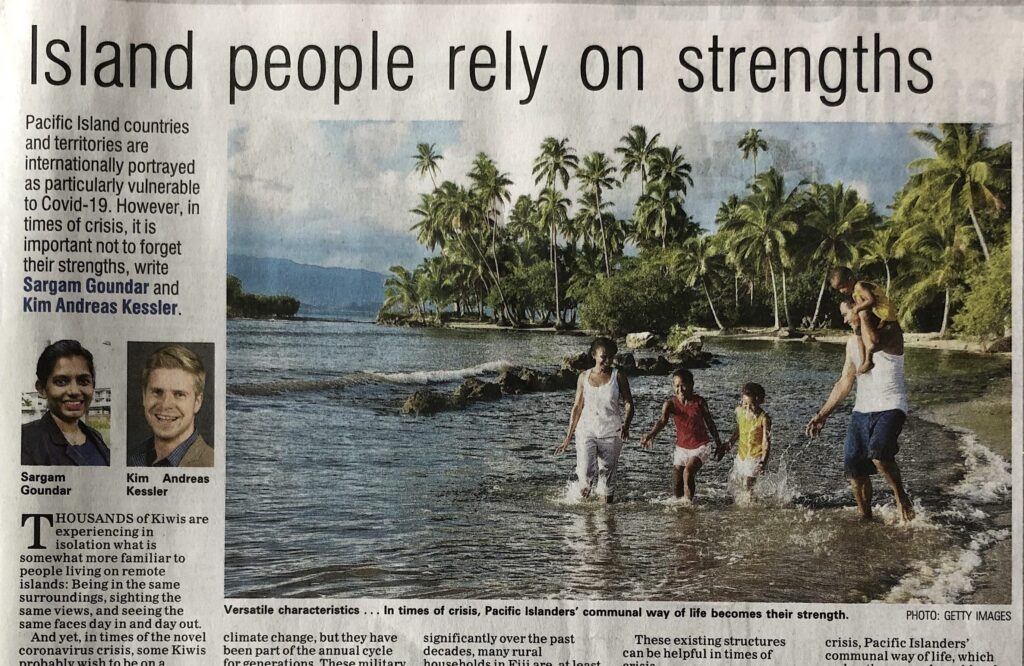I thoroughly enjoyed chairing the engaging session on resilience, knowledge, and identities in the Pacific at the Aotearoa New Zealand International Development Studies (DevNet) conference. We concluded with reflections on the terminologies and identities a new generation of scholars seeks to embrace in guiding the future of Pacific development studies.
